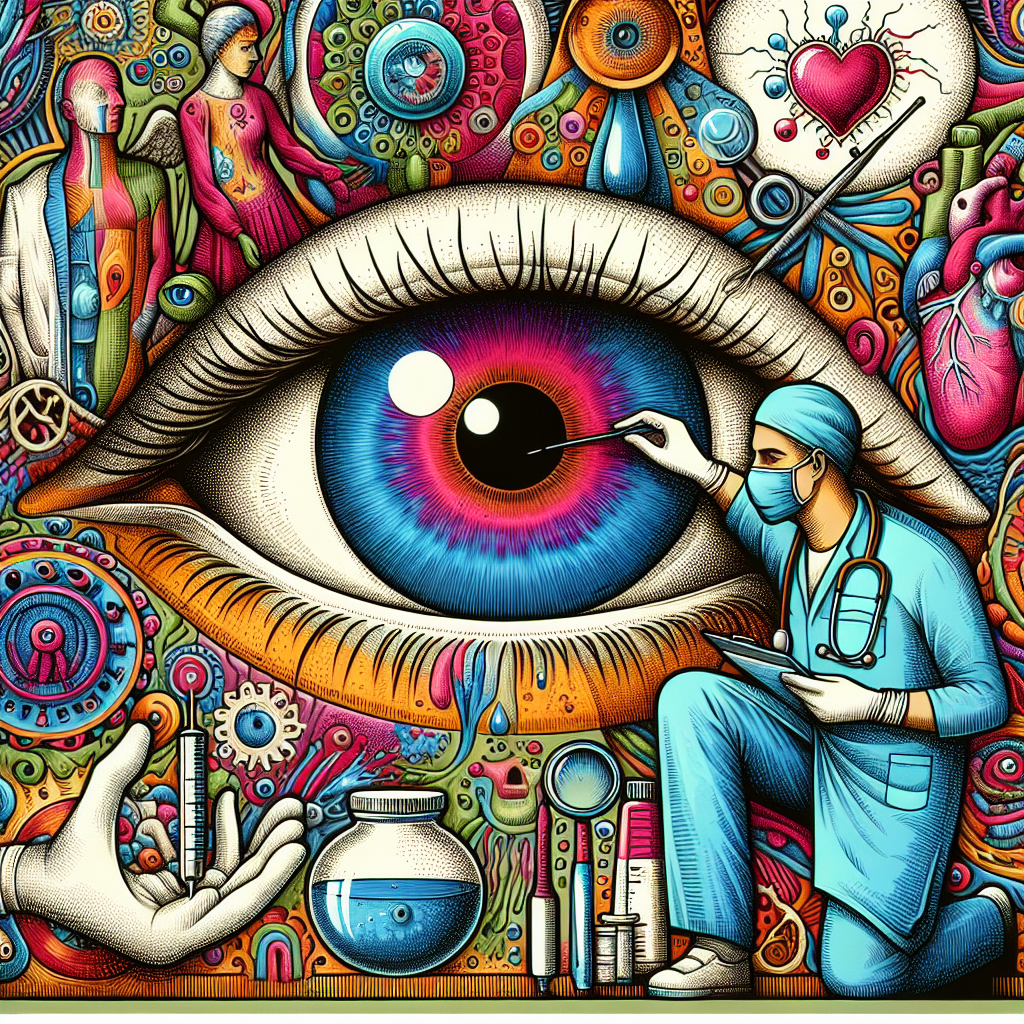Introduction
Imagine a clear blue sky suddenly masked by stormy clouds; this is akin to the onset of an eye infection. Our eyes, those wondrous windows to the world, are susceptible to various infections that can obscure our vision and disrupt our daily lives. Whether it’s the pesky irritation of conjunctivitis or the unwelcome visitor known as a stye, knowing how to address these issues is paramount. This article delves into the effective methods of treating eye infections, ensuring that your vision remains as clear as day.
- Understanding Eye Infections
- Common Symptoms of Eye Infections
- Treatment Options for Eye Infections
- Home Remedies: A Gentle Touch
- When to Seek Professional Help
- Conclusion
Understanding Eye Infections
Eye infections can be likened to uninvited guests at a serene garden party. They arrive with an array of symptoms that range from mild discomfort to severe pain and redness. Most commonly, infections occur due to bacteria, viruses, or fungi invading the delicate tissues of the eye. Understanding the type of infection is crucial in determining the most effective treatment.
Common Symptoms of Eye Infections
The symptoms of an eye infection can vary significantly depending on the cause. Some common signs that your eyes may be under siege include:
- Redness: Like a sunset over the horizon, the whites of your eyes may turn a concerning shade of red.
- Irritation and Itching: Persistent itchiness can feel like a feather relentlessly teasing your eyeball.
- Discharge: Any unusual fluid leaking from the eye could signal an infection.
- Swelling: Puffiness around the eyes might make you resemble a traveler who has lost their way.
Treatment Options for Eye Infections
Treating an eye infection requires precision and care, much like a skilled conductor orchestrating a symphony. Here are some of the preferred methods:
Medications
Prescription medications such as antibiotic or antiviral eye drops are often the first line of defense. These medications help target the underlying cause of the infection and provide relief from symptoms.
Over-the-Counter Solutions
For less severe cases, over-the-counter artificial tears or anti-inflammatory eye drops can offer comfort and help reduce symptoms.
Comprehensive Eye Care Services
If symptoms persist or worsen, seeking professional assistance from facilities offering comprehensive eye infections and stye treatment services becomes essential. Such services ensure that your condition is thoroughly assessed and treated with expertise.
Home Remedies: A Gentle Touch
Sometimes, the tender embrace of home remedies can soothe minor eye infections. Consider these simple yet effective solutions:
- Warm Compress: Applying a warm compress can ease discomfort and promote healing, much like a gentle hug for your eyes.
- Tear Substitutes: Artificial tears can help wash away irritants and keep your eyes moist.
- Avoiding Irritants: Steering clear of allergens or contact lenses during an infection helps prevent further irritation.
When to Seek Professional Help
The divide between a minor inconvenience and a serious concern can sometimes blur like fog on a cool morning. If you experience severe pain, vision changes, or persistent symptoms, it may be time to visit an urgent care service. These services provide swift and attentive care to mitigate complications and restore your eye health.
Key Takeaways
- Identify symptoms early to choose appropriate treatments.
- Utilize medications or home remedies based on severity.
- Seek professional care when needed to avoid complications.
FAQ
Can an eye infection heal on its own?
While some mild infections may resolve without intervention, it is generally advisable to seek medical advice to prevent complications.
Are there any risks associated with untreated eye infections?
Yes, untreated infections can lead to more severe issues, including vision impairment or spread of infection.
How long does it take for an eye infection to heal?
The healing time varies depending on the type and severity of the infection but typically ranges from a few days to several weeks.
Conclusion
Navigating the waters of an eye infection requires knowledge and decisive action. By understanding symptoms and treatment options, you can safeguard your vision against the murky depths of infection. Remember, when in doubt, seeking professional advice is always wise. Your eyes are precious beacons guiding you through life—ensure they receive the care they deserve.
For more information on dealing with infections, visit our detailed guide on eye infections and stye treatment services. Remember, your health is a journey worth investing in.
Additionally, explore resources provided by renowned health organizations such as the CDC, which offer valuable insights into preventing and managing infections effectively.




